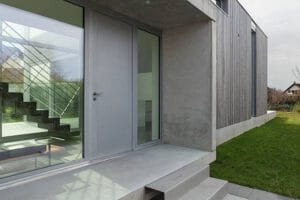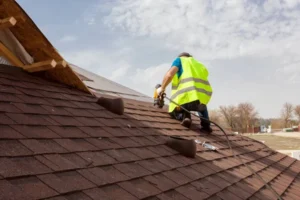Did you know that U.S. household consumes about 11,000 kilowatt-hours annually? If you’re like most people, you probably want to take charge of your energy needs.
You might want to know if there are tools, technology, and skill-based options available to you. You won’t necessarily have to become a prepper who lives off the grid and only uses what they can produce. Knowing about these handy alternatives to traditional energy sources can help you change the way you get energy.
Read on to learn about a variety of alternative sources of energy for your home.
Solar Power
There are many alternative sources of energy for your home solar power. One is to use a solar power system to supplement your current sources of energy. This can be an effective way to reduce your reliance on fossil fuels, and save money on your energy costs.
Solar thermal systems use the sun’s energy to heat water. It can then be used for heating, cooling, and hot water needs.
They can be used in conjunction with traditional energy sources, or they can be used as a standalone system. There are many companies that offer solar thermal systems. Many offer financing options to make the systems more affordable.
Investing in solar panels is a great way to reduce your carbon footprint and save on your energy bill. They convert the sun’s energy into electricity. It can help to power your entire home or just a few appliances.
There are many different types of systems to choose from. You should consider the climate in your area when selecting a solar panel system. It’s important to do your research before making a purchase.
Solar panels can be a great alternative source of energy for your home. You can visit https://goehs.com/st-petersburg/ for your solar panel needs. They provide efficient energy solutions to homeowners to create a more sustainable future.
Wind Turbines
Wind turbines are an increasingly popular option for powering your home. They are easy to install and can provide a significant source of renewable energy. They can be used in conjunction with solar panels and other renewable energy sources to power your home.
There are many things to consider when choosing wind turbines for your home. The first step is to determine how much power you need to generate. This will vary depending on your home’s size, insulation, and energy usage.
Once you know how much power you need, you can start looking at different turbines. There are three main types of turbines. They are the horizontal axis, vertical axis, and micro.
Each type has its own advantages and disadvantages. Horizontal axis wind turbines are the most common type of turbine. They are commonly used in residential applications.
They are less expensive than other types of turbines, and they are easier to maintain. They are also more efficient in converting wind into electricity. They have a smaller footprint than vertical axis turbines.
Vertical-axis turbines are less common than horizontal-axis turbines. They can be mounted on tall towers. This means they can take advantage of stronger winds.
They can be placed in smaller spaces, so they may be a good option if you have limited space. They tend to be less efficient than horizontal-axis turbines and they are also more expensive to maintain.
Micro-turbines are the most expensive but are the most efficient. Ultimately, the best type of turbine for you will depend on your specific needs and budget.
Biomass
Biomass is an organic material derived from plants and animals. It can be used as a fuel for cooking, heating, and generating electricity. It is a clean energy source because it produces little to no air pollution.
Some examples of biomass fuel include wood pellets, wood chips, and corn. It is a carbon-neutral energy source. This means that the emissions from burning biomass for energy are the same as the emissions from the natural decomposition of the biomass.
There are a few different ways to harness this energy for your home. One is to heat your home with a biomass boiler. This type of boiler burns biomass fuels, such as wood pellets, to produce heat.
Another way is to generate electricity with a biomass generator. This type of generator burns biomass fuels to produce electricity.
Hydroelectricity
Hydroelectricity is one of the most reliable and affordable forms of renewable energy. There are a few different ways to generate hydroelectricity for your home.
One popular method is to use a small hydroelectric generator. These generators are typically used in conjunction with a wind or solar PV system. The generator turns the energy from the water into electricity, which is then used to power your home.
Another option for generating hydroelectricity is to install a micro-hydro system. They are like small hydroelectric generators, but they are designed to work with a smaller volume of water. These systems can power a single appliance or a small group of appliances.
If you live near a river or stream, you may be able to generate hydroelectricity using a water wheel. Water wheels are large turbines that turn the energy from the flowing water into electricity.
Geothermal
Geothermal energy comes from the heat that is generated deep within the earth. This heat can be used to generate electricity or to heat your home directly.
In order to tap into this energy source, you will need to have a system that can access the heat and bring it to the surface. The type of system that you choose will depend on a number of factors. This includes the climate in your area and the type of terrain that you have.
Geothermal energy is a viable option if you want to power your home with it. You must speak with a professional to determine if this is the best option for you.
Using Alternative Sources of Energy to Power Your Home
Climate change is becoming an increasingly pressing global issue. Finding renewable and alternative sources of energy is more important than ever.
Using one or more of these can help reduce your carbon footprint and protect the environment. Contact your local utility company to learn more about how you can use alternative energy sources in your home.
Want more articles to help you out with what you should be doing? Check out the rest of our site to read our other content!









